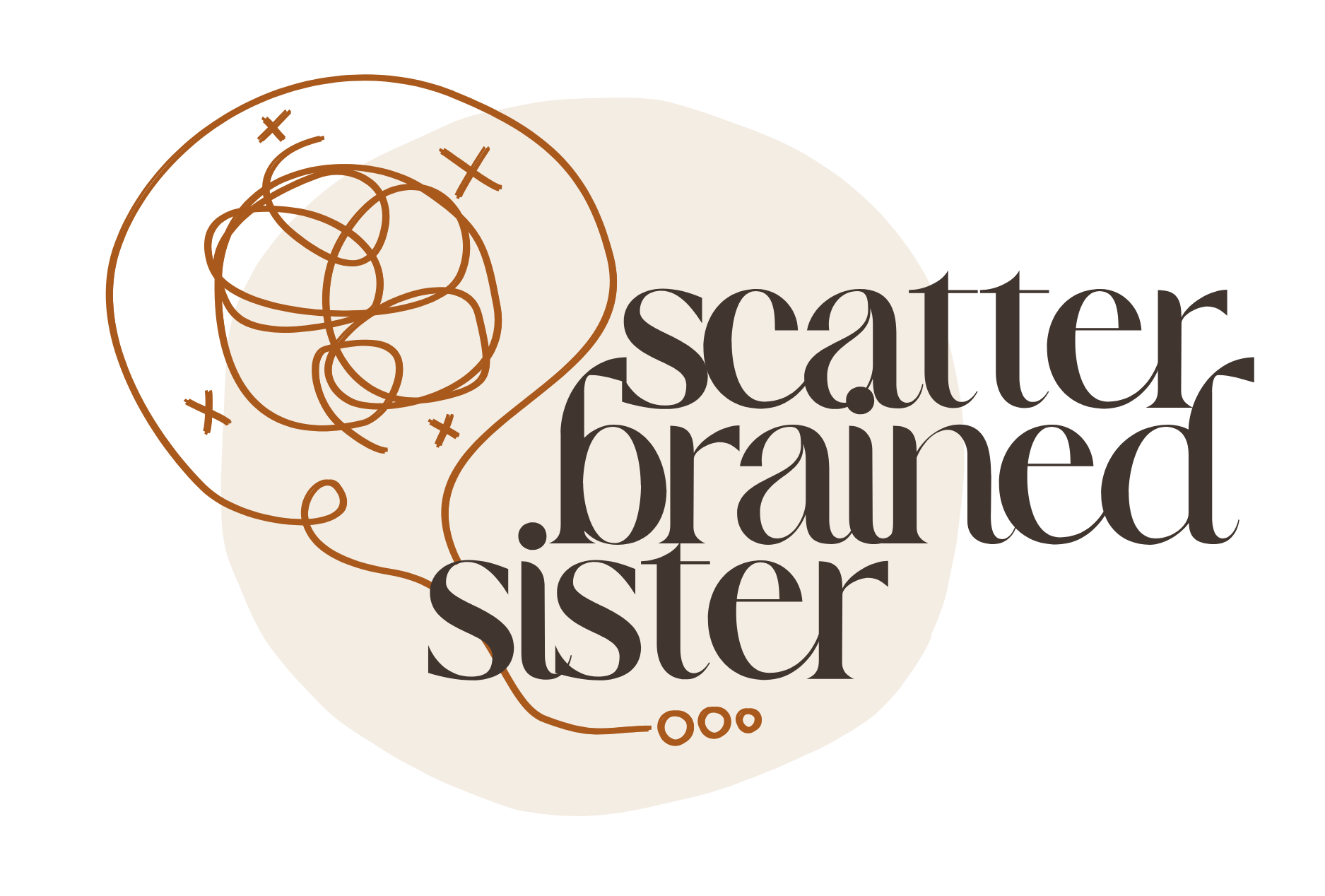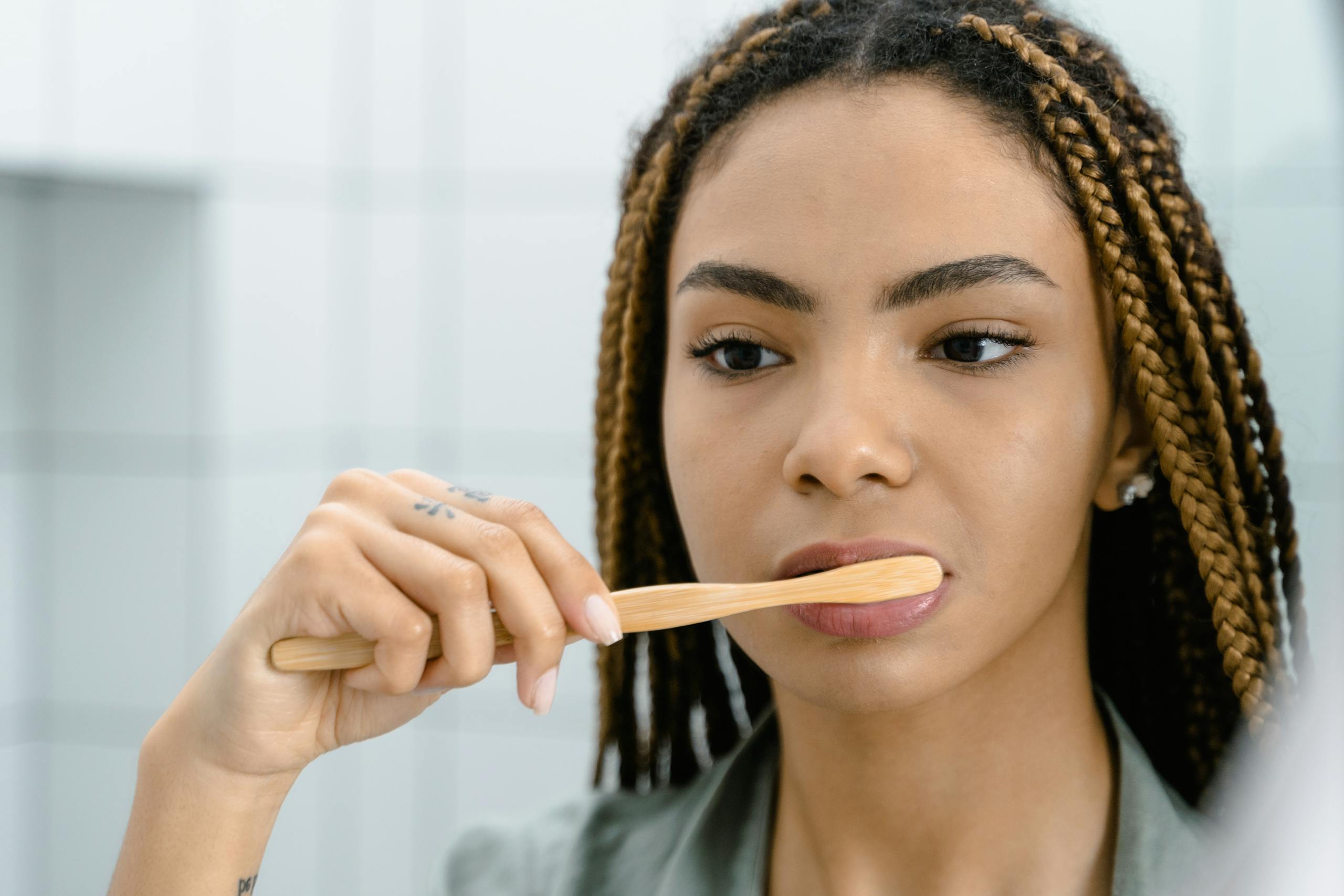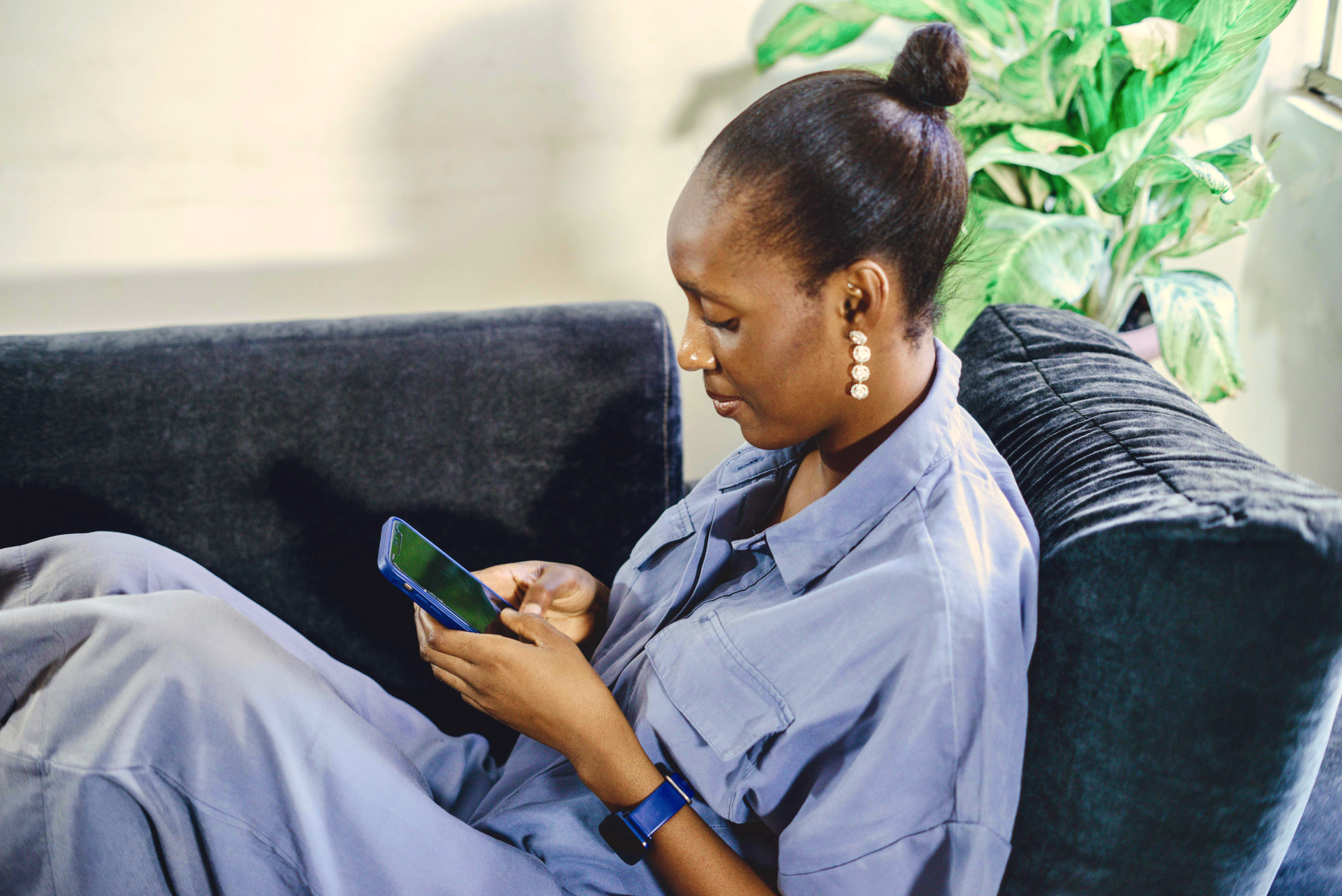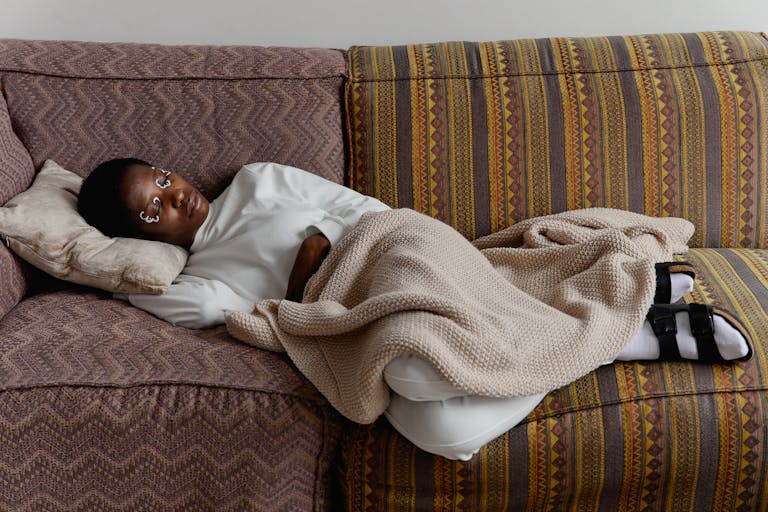Why Do I Hate Brushing My Teeth?: 3 ADHD Friendly Strategies That Actually Work
TLDR: If you hate brushing your teeth, identify what’s causing the mental block, consider even the smallest annoyances, and use these 3 tips to build a routine that sticks.
To say I hate brushing my teeth is an understatement, and as a child, my mouth was a checkerboard of fillings. I’ve had this toxic relationship with my toothbrush since I can remember.
I wore braces for an unfathomably long time to fix a gap reminiscent of SpongeBob’s, and when I finally got my retainer, I lost it 3 times within weeks of each replacement.
The last one, which my mom warned had cost a pretty penny we genuinely didn’t have, I forgot on my lunch tray during a field trip. I nearly shat myself on the bus ride home, realizing it was gone for good.
Eventually, my teeth shifted apart again. So, if you’re asking yourself, “Why do I hate brushing my teeth?” I totally get it.

I tried every hygiene hack I could find, but it wasn’t until I started therapy and learned about the connection between ADHD and hygiene. Since then, the relationship between me and the brush has significantly improved.
In this post, I’m sharing why ADHD makes self-care so hard to maintain and the three strategies that actually worked for me.
I Hate Brushing My Teeth
For most of us with ADHD, the real struggle is the daily requirement and sensory overwhelm, not the act of brushing itself. The most important part of overcoming these obstacles is spending some time figuring out exactly what’s keeping you from the sink:
- Does the mintiness of the toothpaste sting your tongue?
- Do the bristles cause your gums to look like a massacre occurred in the sink?
- Maybe the cold water makes a chill run down your spine as it hits your teeth?
- Is it really tough to get out of bed in the morning?
- Could it be that you’re lying in bed each night, scrolling till you pass out, which causes you to forget to brush?
Until you understand the reason (or reasons) why brushing feels impossible, it’s nearly impossible to find a solution that actually works.
Start here: the next time you need to brush, take a moment to note whatever friction you may be feeling.
It may not seem obvious at first, but if you really take the time to sit with what is causing the distress or avoidance, patterns will start to emerge. From there, you can work backwards to address the specific friction points instead of forcing yourself through something that feels impossible.
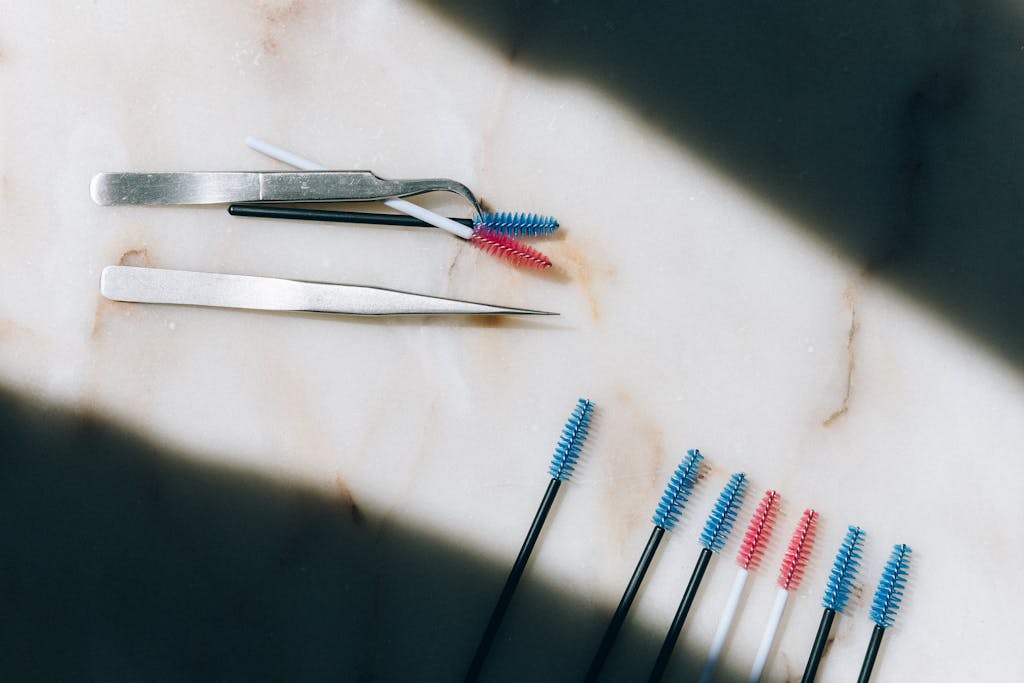
ADHD, Brushing Teeth, & the Shame Loop
On the flip side, maybe your working memory is simply trash, and that, combined with difficulty switching tasks, means each time you say you’ll brush, you get distracted, forget, then feel shame when it’s time again, causing you to put it off, then you forget, get distracted, remember, feel shame again… sound familiar?
This is how ADHD hijacks well-meaning intentions and causes a mental loop of paralysis, but the answer lies in the same friction that causes you to freeze.
For the more scattered brains of the bunch, I especially hate the typical advice offered to buy a new flavored toothpaste, sticky notes, or a music playlist, as if these aren’t the first brain-dead ideas that come to mind.
Instead, start here: the next time you need to brush, drop what you’re doing right that moment and really sit with that feeling of conflict around getting up to do the thing. Sometimes it’s hard to remember to take notes or document exactly what the friction is, but you can pull out your phone and talk to yourself in a voice memo, save a feelings wheel and screenshot what’s coming up, or specifically try to name where you feel the pushback.
Is your brain telling you that you need to clean the entire bathroom first, but you’re too tired, so you put it off? Or is it just that touching the floor with wet, cold feet disgusts you, and so does the bath rug everyone else uses, so it makes you avoid the whole ordeal until you can’t any longer?
Although irrational to others, ADHDers tend to have sensory aversion issues, which cause these hiccups around daily care and self-maintenance.
This is not an all-time fix or fool-proof way to ensure you brush 3 times a day as scheduled, but instead a practice in sitting with yourself to really get a feel of what is causing that friction.
Increased anxiety, alexithymia (difficulty naming feelings), feeling detached from your body, or just straight up not knowing what you’re feeling are common barriers to understanding where the true problem lies that keeps you from moving forward.
How to Remember to Brush Your Teeth
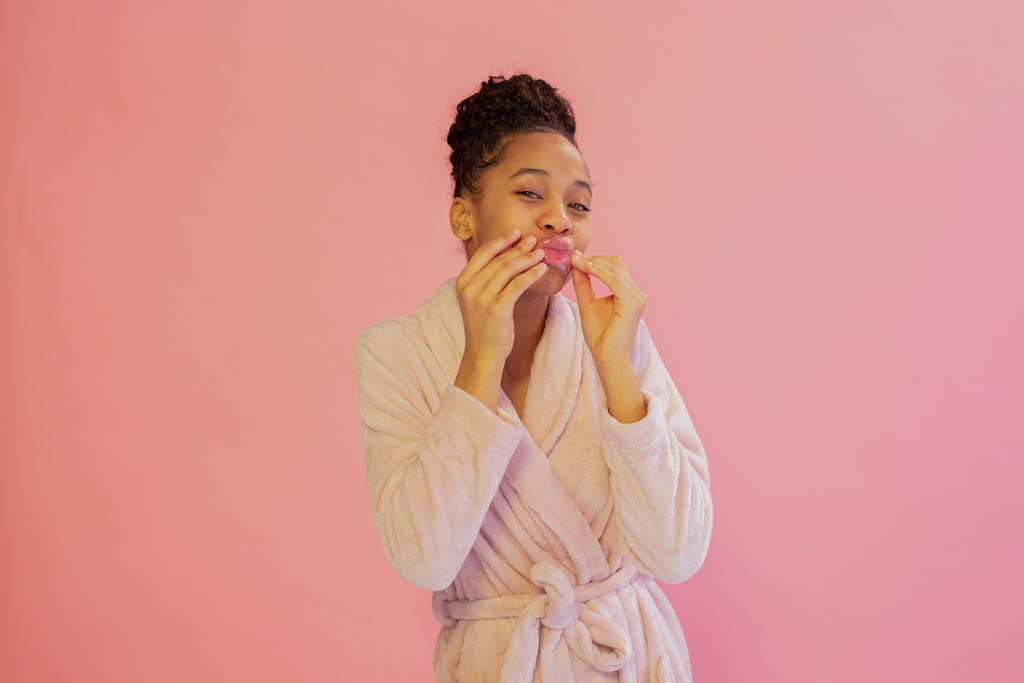
Externalize Everything
Your brain can’t reliably hold reminders, motivation, or memory, so stop trying to force it to. In 3 tiers (physical, visual, and digital), create a support system that removes unnecessary steps and does the remembering for you:
Physical (Make the thing easier to do than NOT)
- Put your toothbrush somewhere annoying. On your pillow at night. Next to your coffee maker in the morning. In front of the TV remote, if that’s where you always end up. The goal is to make it harder to avoid than to just do it.
- Purchase multiple toothbrush packs with toothpaste already loaded in them and leave a few in all your normal sitting areas.
- Tie it to another physical action like peeing first thing in the morning and right before bed. Wash your hands, then immediately brush.
Digital (Reinforcement)
- Change your phone wallpaper to a close-up photo of your own teeth or a screenshot from the dentist. Sounds unhinged, but you unlock your phone 100+ times a day—that’s 100 passive reminders without having to remember to set anything.
- Change your partner’s or roommate’s contact name to “Brush Your Teeth” so every text from them is a reminder.
- If you use focus modes or bedtime modes, set it to automatically send you a text via IFTTT or Shortcuts that says, “brush now or regret it at the dentist.”
Visual (Keep the thing in your face)
- Throughout the day, watch dental hygiene content. Eventually, your algorithm will start reminding you without effort, plus actively watching means you’re more likely to feel motivated to actually do it.
- Write it on the bathroom mirror with a dry-erase marker.
- Leave the bathroom light on (or off, whichever is abnormal for you) until you brush. The wrongness of it will bother you enough to investigate.
Manufacture Urgency
Similar to productive procrastination (which others find hilarious, but I genuinely use on the regular to stay sane), manufactured urgency is just creating your own crisis to do “the thing.”
Many adults with ADHD respond to urgency and stakes more than anything else, so sometimes we need to create a sense of urgency or consequence ourselves.
The trick is to make not brushing more uncomfortable than brushing:
- Make plans to leave the house, even if just to walk to the mailbox. You’ll likely want to put on some clothes, and this also tends to trigger basic hygiene habits because you’re not going out with stank breath (hopefully 👀).
- If you live with someone, intentionally tell them you need to talk up close. Hell, if you don’t want to knock your pet out with dragon breath, they can even be on the receiving end. Sometimes, the awareness alone that someone else may smell your breath is enough motivation.
- Schedule a dental cleaning or whatever appointment you’ve been avoiding. Knowing you have to face the hygienist is a hard deadline your brain can’t ignore. I’m basically spring cleaning my mouth before I see my dentist each month at this point lol.
What Happens If You Don’t Brush Your Teeth At Night
Ironically, brushing your teeth at night is the most important brush of the day, while also usually being the hardest for us who struggle with fluctuating energy and executive dysfunction.
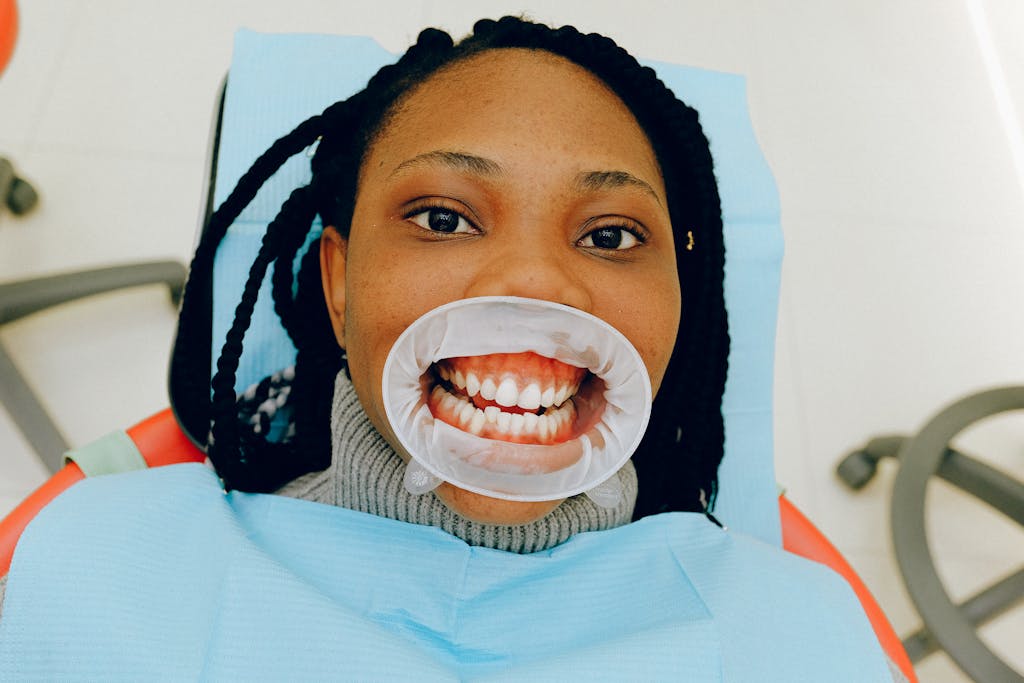
While you sleep, your mouth becomes a breeding ground for bacteria, and that feeling of gross mossy teeth develops over time.
Since your mouth isn’t producing as much saliva as during waking hours, which naturally rinses away food particles and acids, it dries out, leaving all that crap from the day to marinate into whatever new flavors on your teeth for the next 6-8 hours.
If you skip the nighttime brush, it also allows plaque time to harden into tartar, which inflames the gums and starts the foundation for cavities. Once plaque graduates to the tartar level, your morning breath becomes a biohazard.
Takeaway
I’m not sharing this information to shame those who skip the night brush; I’ve shared quite an embarrassing past of my own with brushing, but to highlight how much more damage occurs when a day of eating has time to linger for hours on end.
I’m also fully aware that knowing this doesn’t magically make brushing easier when you’re already in bed, exhausted, and the bathroom feels like it’s a mile away. Sometimes the thought alone of what new ecosystems could be plotting their insurrection between my teeth makes me hop out of bed and grab the toothbrush.
But if I’m being honest, and what’s the point here if I’m not, that doesn’t work even a good half of the time.
On the days you can’t muster up the energy to do the full brush routine, just do something. Rinse with water, swish some mouthwash, or one of the most foolproof options: keep a few disposable toothbrushes near your bedside.
It’s not perfect, but it’s better than nothing, and it’ll keep you from spiraling into the shame loop that makes tomorrow night even harder.
Disclaimer: The content on Scatterbrained Sister is for informational and reflective purposes only and isn’t a substitute for professional medical advice, diagnosis, or treatment. Always consult your healthcare provider with questions about ADHD or any other condition. These experiences are personal and may not apply to everyone.
